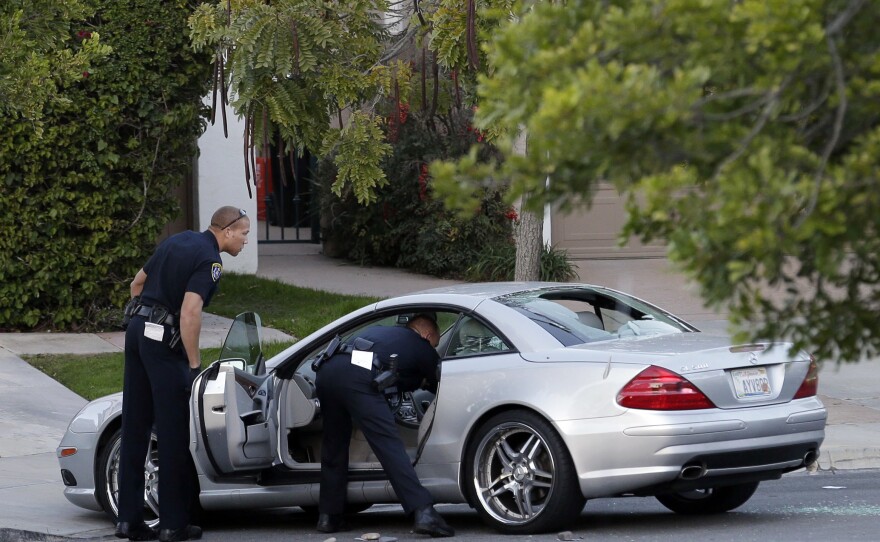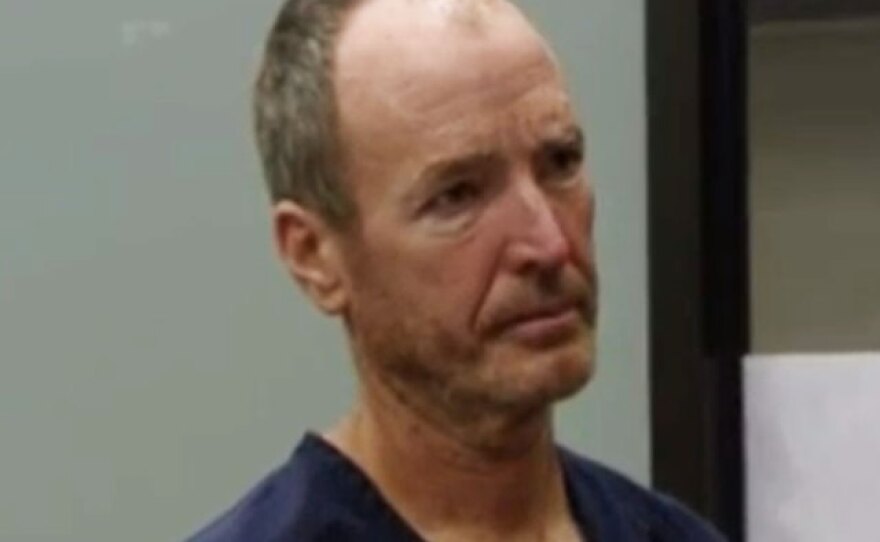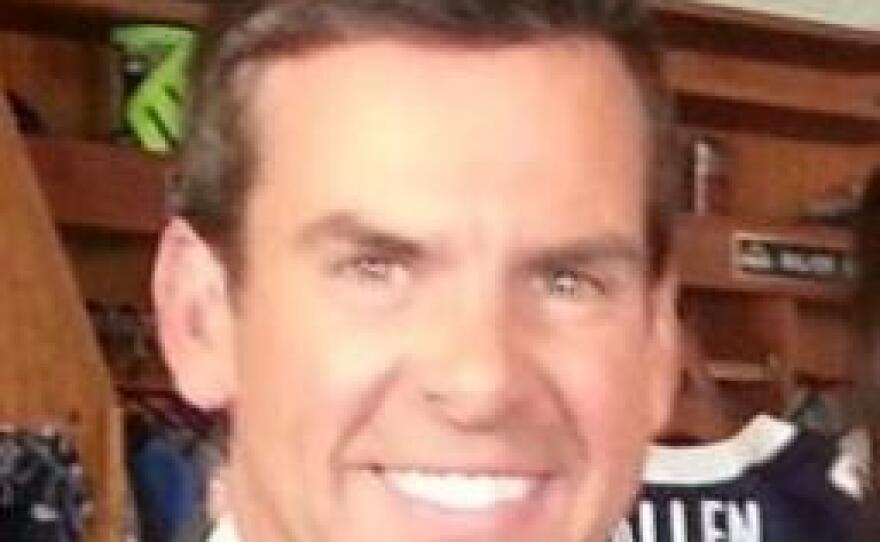A television sportscaster testified Tuesday that a man he hired to paint his Scripps Ranch home shot him in his car as he prepared to leave for work nearly four months ago.
Kyle Kraska, testifying in a preliminary hearing whether Mike Montana will be ordered to stand trial, said the defendant pulled up behind his silver Mercedes-Benz as he began to back out of his driveway about 3 p.m. on Feb. 10.
Kraska testified that Montana got out of his van and walked toward him, motioning for Kraska to put the window down.
"He said, `You should have paid me my $2,200," the CBS8 sportscaster testified.
Kraska said he saw Montana with a gun and heard a shot, then saw Montana fire three more shots through the hood of his car. He said Montana then pointed the gun at him and fired through the windshield. Kraska said he heard glass exploding and bailed out of his car and onto the ground.
"I was hoping he (Montana) would run out of bullets," Kraska testified.

The victim realized he had been shot and got back into his car, then heard Montana drive off.
Kraska said he thought he would die if he didn't get help, but his cell phone had been destroyed by a bullet. He said he crawled into the middle of the street so he would be seen, and help arrived shortly thereafter.
Witnesses reported seeing an older-model white minivan with the words "Superior Painting" on the sides speeding off after hearing the gunfire.
Montana was tracked to his El Cajon home, where he surrendered to SWAT officers about seven hours after the shooting.

Kraska said he hired Montana to paint his house last October after the defendant taped a business card to the victim's front door. He said he paid Montana $800 up front and the two agreed that $2,200 was due when the job was completed.
Kraska said Montana quit in early November when Kraska refused to pay the $2,200 because the job wasn't finished.
About a week before the shooting, Montana left a note under Kraska's doormat, telling Kraska he owed him $2,200. Kraska said the note read, "It's in your best interest to pay me the money that you owe me."
Montana, 54, waved to Kraska as the sportscaster took the witness stand.
The defendant, who is charged with premeditated attempted murder, faces nearly 38 years to life in prison if convicted.
Deputy District Attorney Rebecca Zipp alleged that Montana shot Kraska six times from several feet away, including twice in the upper body, with the intent to kill.
The gunfire left several windows blown out of Kraska's Mercedes. The victim was found lying face-down on the pavement outside his car and was rushed to Scripps Memorial Hospital La Jolla.
Kraska said he awoke from a coma 6 1/2 days later and has missed six to seven weeks of work. He said he has had at least three surgeries, including a procedure to remove fluid build-up on his heart.
At the conclusion of the preliminary hearing, which resumes Wednesday, Judge Michael Smyth will determine whether enough evidence was presented for Montana to proceed to trial. In addition to premeditated attempted murder with allegations that he caused great bodily injury and personally used a firearm, Montana is charged separately with making a verbal criminal threat to a woman last November.







